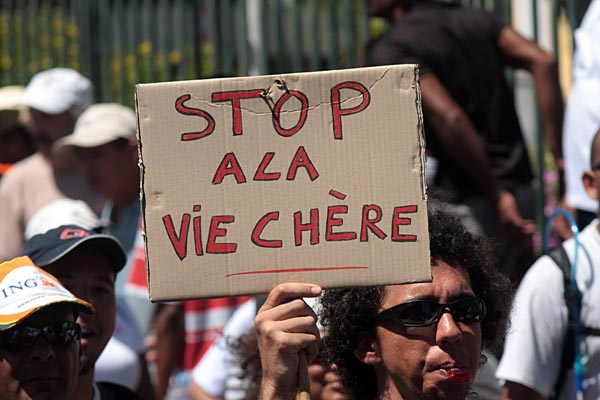 Some elements of the article written on Retailcore on events caused by the COSPAR Réunion against large retailers:
Some elements of the article written on Retailcore on events caused by the COSPAR Réunion against large retailers:Cospar raises the pressure on large retailers in the Reunion
A week after the event finally met the great distribution and COSPAR (The Collective of Trade Unions, Politics and associative Reunion) to negotiate the products know that a decrease in the shops of the Réunion.
It was after several hours of discussion that the two actors have agreed on a list of over 200 products.
From this discussion two new elements have emerged. The first of these is the fact that local producers have had the opportunity to participate in developing this list. The second comes when, once the agreement is signed, the consumer and with a better track signage shelf products targeted by COSPAR.
Large retailers aware of the impact of the crisis on the residents of the Réunion and appears to have taken reasonable steps in accepting the request of COSPAR.
Calm returned to the Réunion, here is an example of a good relationship between "union" and "mass distribution".
A week after the event finally met the great distribution and COSPAR (The Collective of Trade Unions, Politics and associative Reunion) to negotiate the products know that a decrease in the shops of the Réunion.
It was after several hours of discussion that the two actors have agreed on a list of over 200 products.
From this discussion two new elements have emerged. The first of these is the fact that local producers have had the opportunity to participate in developing this list. The second comes when, once the agreement is signed, the consumer and with a better track signage shelf products targeted by COSPAR.
Large retailers aware of the impact of the crisis on the residents of the Réunion and appears to have taken reasonable steps in accepting the request of COSPAR.
Calm returned to the Réunion, here is an example of a good relationship between "union" and "mass distribution".




